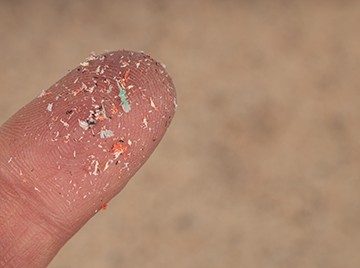Think about how many pieces of plastic you come across in a single day. Plastic water bottles, plastic at the supermarket, plastic utensils from take out, plastic packaging, the list goes on and on. Researchers are investigating the implications of ingesting microscopic pieces of plastic through food, beverages, and air. They found that these tiny pieces of plastic “could enter liver and lung cells and disrupt their regular processes, potentially causing adverse health outcomes.” They also found that particles less than 100nm wide have the capacity to “enter animals’ blood and organs, causing inflammation, toxicity and neurological changes.” As nanoplastics entered the liver and lungs, “they produced more reactive oxygen species and different amounts of nucleotides, nucleosides, amino acids, peptides and carboxylic acids, indicating that multiple metabolic processes were disturbed.”
What Are Nanoplastics & How Are They Getting Into Our Bodies?

Join the AGEIST movement!
Sign-up for our weekly magazine.
See medical disclaimer below.
The ideas expressed here are solely the opinions of the author and are not researched or verified by AGEIST LLC, or anyone associated with AGEIST LLC. This material should not be construed as medical advice or recommendation, it is for informational use only. We encourage all readers to discuss with your qualified practitioners the relevance of the application of any of these ideas to your life. The recommendations contained herein are not intended to diagnose, treat, cure or prevent any disease. You should always consult your physician or other qualified health provider before starting any new treatment or stopping any treatment that has been prescribed for you by your physician or other qualified health provider. Please call your doctor or 911 immediately if you think you may have a medical or psychiatric emergency.
